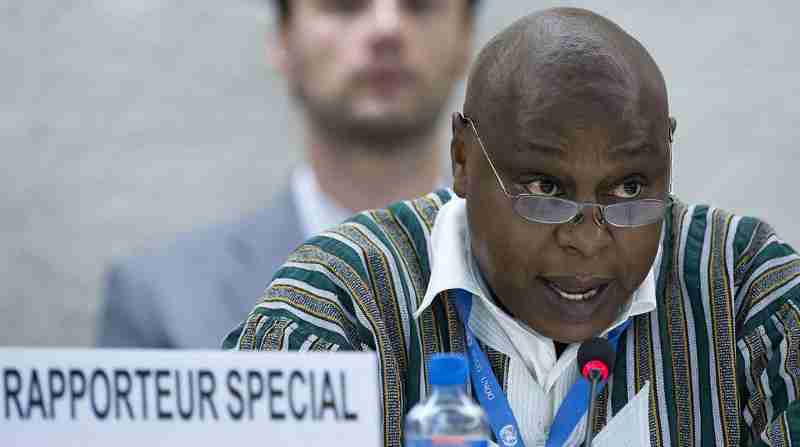Native Americans Facing Excessive Force in North Dakota: UN

A United Nations (UN) human rights expert has accused US security forces of using excessive force against protesters trying to stop an oil pipeline project which runs through land sacred to indigenous people.
Law enforcement officials, private security firms and the North Dakota National Guard have used unjustified force to deal with opponents of the Dakota Access pipeline, according to Maina Kiai, the UN Special Rapporteur on the rights to freedom of peaceful assembly and association.
Some of the 400 people held during the demonstrations had suffered “inhuman and degrading conditions in detention,” Mr. Kiai added.
[ Stop Human Rights Abuses in Kashmir: Rights Groups ]
Protesters say they have faced rubber bullets, teargas, mace, compression grenades and bean-bag rounds while expressing concerns over environmental impact and trying to protect burial grounds and other sacred sites of the Standing Rock Sioux Tribe.
“Tensions have escalated in the past two weeks, with local security forces employing an increasingly militarized response to protests and forcibly moving encampments located near the construction site,” the rights expert said.
[ Delhi Housing Societies Case: Threats from ITC Worker ]
“This is a troubling response to people who are taking action to protect natural resources and ancestral territory in the face of profit-seeking activity,” he noted. “The excessive use of State security apparatus to suppress protest against corporate activities that are alleged to violate human rights is wrong and contrary to the UN Guiding Principles on Business and Human Rights.”
“People feel that their concerns are being ignored, and it is their right to stage peaceful assemblies so that these concerns can be heard. The authorities have an obligation to actively protect that right. The rights of cultural heritage defenders have to be respected and protected,” he added.
[ Protests Intensify Against Donald Trump in America ]
The Special Rapporteur acknowledged reports that some protests had turned violent, but emphasized that the response had to be strictly proportionate and not affect peaceful protesters.
Mr. Kiai also said an announcement on 8 November by pipeline operator Energy Transfer LLC Corporation, stating that the final phase of construction would start in two weeks, “willfully” ignored an earlier public statement by federal agencies.
“I call on the Pipeline Company to pause all construction activity within 20 miles east and west of Lake Oahe,” he said.
Construction of the pipeline has continued despite a call in September by the UN Special Rapporteur on the rights of indigenous peoples, Victoria Tauli-Corpuz, and other experts for it to be halted.
The 1,172-mile (1,890km) pipeline, designed to carry crude oil to a refinery near Chicago, is being built by Energy Transfer and the US Army Corps of Engineers.
Protesters say several sacred sites of the Standing Rock Sioux tribe have already been bulldozed, and construction work is nearing the Missouri River, which is held sacred. In addition, protesters believe the project poses a significant threat to the quality of the drinking water.






